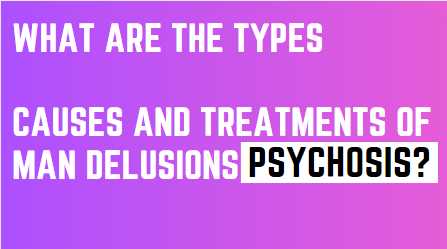How to Talk to a Delusional Person
Dealing with someone who is experiencing delusions can be a difficult and complex task. Delusions are firmly held beliefs that are not based on reality and can be caused by various factors, including mental illness, drug use, and neurological conditions. When confronted with a delusional person, it’s important to approach the situation with empathy and understanding. In this article, we’ll explore some strategies on how to talk to a delusional person.
Listen Attentively and Empathize
The first step in communicating with a delusional person is to listen attentively and empathize. When someone is experiencing delusions, they may feel scared or threatened. It’s essential to validate their feelings and let them know that you understand what they’re going through. Try to put yourself in their shoes and imagine how you would feel if you believed something that nobody else did.
Don’t Challenge Their Beliefs
Arguing with a delusional person about their beliefs is not helpful. It’s important to remember that their beliefs are very real to them, and they may feel attacked if you try to contradict them. Instead, try to redirect the conversation to a more neutral topic. You can say something like, “I can see that you feel strongly about this, but let’s talk about something else for a moment.”
Be Respectful and Calm
Dealing with a delusional person can be stressful, but it’s important to remain calm and respectful. Speaking in a calm tone and using respectful language can help de-escalate the situation. If you become agitated or upset, it can make the person feel more threatened and less likely to listen to what you have to say. Take deep breaths and try to stay as calm as possible.
Avoid Using Logic
Delusional people often have irrational beliefs that cannot be reasoned with. It’s best to avoid using logic or trying to convince them of the truth. Instead, try to focus on their emotions and how they are feeling. For example, you can say, “I can see that this belief is causing you a lot of distress. How can I help you feel better?” This can help shift the focus away from the delusion and toward the person’s emotions.
Seek Professional Help
If the delusional person is a danger to themselves or others, seek professional help immediately. Mental health professionals have the training and expertise to handle these situations safely and effectively. They can provide medication, therapy, and other treatments that can help alleviate the delusions and other symptoms.
Conclusion
In conclusion, talking to a delusional person requires patience, empathy, and respect. By following these strategies, you can help the person feel heard and understood, while also ensuring their safety and the safety of others. Remember that seeking professional help is always an option if the situation becomes too challenging to handle on your own. With these tips, you can communicate effectively with a delusional person and help them feel supported during a difficult time.






